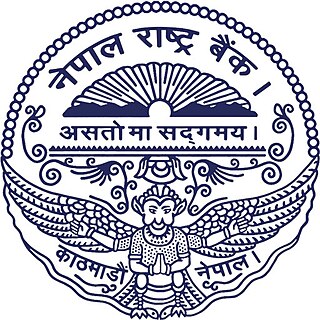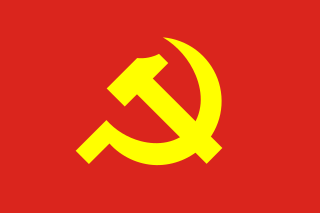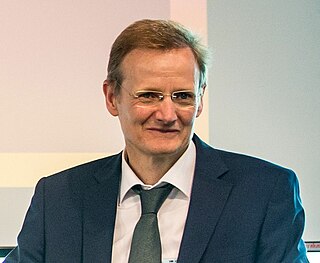Related Research Articles

Though the Ministry of Foreign Affairs (MOFA) is the government agency responsible for the conduct of foreign relations of Nepal, historically, it is the Office of Prime Minister (PMO) that has exercised the authority to formulate and conduct policies related to Nepal's foreign affairs. As a landlocked country wedged between two larger and far stronger powers, Nepal has tried to maintain good relations with both of its neighbors, People's Republic of China and Republic of India. Nepal's relationship with China, India, and the United States has remained utmost priority for successive Nepali governments. The relationship between Nepal and India however was significantly hampered during the 2015 Nepal blockade by pro-Indian anti-Nepal protestors, where the Government of Nepal accused India of using "Russia-Ukraine" tactics to cause unrest along Nepal's southern border using ethnically Indian residents of Nepal. India strictly denied the allegation and said the unrest were solely due to Madheshi protesters. For the most part though, Nepal has traditionally maintained a non-aligned policy and enjoys friendly relations with its neighboring countries and almost all the major countries of the world.

Perestroika was a political movement for reform within the Communist Party of the Soviet Union (CPSU) during the late 1980s widely associated with CPSU general secretary Mikhail Gorbachev and his glasnost policy reform. The literal meaning of perestroika is "reconstruction", referring to the restructuring of the Soviet political and economic system, in an attempt to end the Era of Stagnation.

Mahendra Bir Bikram Shah Dev was the King of Nepal from 13 March 1955 until his death in 1972, which was due to heart attack as told in an interview by his personal physician Dr. Mrigendra Raj Pandey. Following the 1960 coup d'état, he established the partyless Panchayat system which governed the country for 28 years until the introduction of multiparty democracy in 1990. During his reign, Nepal experienced a period of industrial, political and economic change that opened it to the rest of the world for the first time after the 104-year-long reign of the Rana rulers, who had kept the country under an isolationist policy, came to an end in 1951.

Birendra Bir Bikram Shah Dev was the tenth Shah Ruler and the King of Nepal from 1972 until his assassination in 2001. He was the eldest son of King Mahendra.

{{Use Oxford spelling|date=September nonononon

Abid Hussain was an Indian economist, civil servant and diplomat. He was India's ambassador to the United States of America from 1990 to 1992 and a member of the Planning Commission from 1985 to 1990.

Vijay L. Kelkar is an Indian economist and academic, who is currently the Chairman of the Forum of Federations, Ottawa & India Development Foundation, New Delhi and Chairman of Janwani – a social initiative of the Mahratta Chamber of Commerce, Industries and Agriculture (MCCIA) in Pune. He has been appointed as a trustee of Sri Sathya Sai Central Trust on 4 January 2014. He was also the Chairman of the Finance Commission until January 2010. He was earlier Advisor to the Minister of Finance (2002–2004), and is known for his role in economic reforms in India. Prior to this, he remained Finance Secretary, Government of India 1998–1999, and in 1999 he has been nominated as Executive director of India, Bangladesh, Bhutan and Sri Lanka on the board of the International Monetary Fund (IMF).
Chalise is a Khas Hindu family name found in Nepal. People with this name are mostly members of the Bahun (Brahmin) caste. According to legend, some priests of Bhattarai caste completed forty chapters of pujas without dropping a single drop of water from their palm. They were then honored with the title Chalise.They also belong from the royal families.
The economic liberalisation in India refers to the opening of the country's economy to the world with the goal of making the economy more market and service-oriented, thus expanding the role of private and foreign investment. Indian economic liberalisation was part of a general pattern of economic liberalisation occurring across the world in the late 20th century. Although some attempts at liberalisation were made in 1966 and the early 1980s, a more thorough liberalisation was initiated in 1991. The reform was prompted by a balance of payments crisis that had led to a severe recession and also as per structural adjustment programs for taking loans from IMF and World Bank.

The Nepal Rastra Bank was established April 26, 1956 A.D. under the Nepal Rastra Bank Act, 1955, to discharge the central banking responsibilities including guiding the development of the embryonic domestic financial sector. As of now, the NRB is functioning under the new Nepal Rastra Bank Act, 2002. functions of NRB are to formulate required monetary and foreign exchange policies so as to maintain the stability in market prices, to issue currency notes, to regulate and supervise the banking and financial sector, to develop efficient payment and banking systems among others. The NRB is also the economic advisor to the government of Nepal. As the central bank of Nepal, it is the monetary, supervisory and regulatory body of all the commercial banks. development banks, finance companies and micro-finances institutions.

Bhim Nidhi Tiwari(Nepali: भीमनिधि तिवारी) (1911–1973) was a leading Nepali poet, novelist and playwright. He was a well-known poet of the post-1950s era and was a firm believer in social reforms and wrote against smoking, drinking, and gambling. He published over 38 works in various styles.

Kamal Thapa is a Nepalese politician belonging to Rastriya Prajatantra Party Nepal.
Samriddhi Foundation is an independent—non-partisan, research and educational, not-for-profit—public policy institute based in Kathmandu, Nepal. It was founded in 2006. It promotes the process of generating alternative ideas from the general public by conducting research and performing other activities on the social, economic and political arenas of Nepal.

The Ministry of Investment, Trade and Industry, abbreviated MITI, is a ministry of the Government of Malaysia that is responsible for international trade, industry, investment, productivity, small and medium enterprise, development finance institution, halal industry, automotive, steel, strategic trade. The ministry has its headquarters located at Menara MITI on Jalan Sultan Haji Ahmad Shah in Kuala Lumpur and the building is also a component of Naza TTDI’s 75.5-acre KL Metropolis, a mixed development that is envisioned to be the International Trade and Exhibition District for Kuala Lumpur. It is one of the three ministries that has not moved to Putrajaya.
Sardar Yadu Nath Khanal was a pioneer Nepali diplomat, government minister, scholar and author in the modern history of Nepal.

The Nepalese Ministry of Minister of Industry, Commerce and Supplies is a governmental body of Nepal to monitor and manage industries of the country.

The most significant initiative made by the Narendra Modi government is the focus on neighbouring countries and major Asian powers coupled with emphasizing on the two decades old Look East policy. Asia being the major focus area of his foreign policy, Modi and his foreign minister chose several Asian countries for their initial bilateral visits. He has made state visits to Bhutan and Nepal and Japan within the first 100 days of his government and also hosted Asian leaders like former Prime Minister Tony Abbott of Australia, President Xi Jinping of China and Prime Minister Nguyễn Tấn Dũng of Vietnam, apart from inviting SAARC leaders in his inauguration ceremony. External Affairs Minister Sushma Swaraj has also made official visits to several Asian capitals like Dhaka, Bangladesh, Kathmandu, Nepal, Naypidaw, Myanmar, Singapore, Hanoi, Vietnam, Manama, Bahrain, Kabul, Afghanistan, Dushanbe, Tajikistan, Malé, Maldives, Abu Dhabi, United Arab Emirates, Seoul, South Korea and Beijing China.

Neighbourhood First Policy of India, a core component of India's foreign policy, focuses on peaceful relations and collaborative synergetic co-development with its South Asian neighbours of the Indian subcontinent encompassing a diverse range of topics, such as economic, technology, research and education, connectivity, space program, defence security, environment and climate challenge. This policy creates new avenues as well as leverages existing regional cooperation initiatives, such as SAARC, SASEC, BBIN, and BIMSTEC. It compliments India's Look East policy focused on Southeast Asia and Look West Policy focused on Middle East.

The 12th National Congress of the Communist Party of Vietnam was the twelfth party congress of the Communist Party of Vietnam that was held at the My Dinh National Convention Centre, Hanoi. The party convened on January 18, 2016 and lasted until January 20. The Congress elected the 200-member Party Central Committee, composed of 180 official members and 20 alternate members.

Ludger Schuknecht is a German economist who has been serving as Vice President and Corporate Secretary of the Asian Infrastructure Investment Bank since 2021.
References
- 1 2 3 4 5 6 "In Memoriam: Dr. Bhola Nath Chalise (1952-2015)". Samriddhi Foundation. Apr 16, 2015.
- ↑ "Ex-secy Chalise passes away". The Kathmandu Post. Apr 14, 2015.
- 1 2 3 "Chalise honored as Freedom Winner". Karobar Daily. Jan 11, 2015. Archived from the original on March 17, 2015. Retrieved May 12, 2015.
- ↑ "How to increase foreign direct investment in Nepal?". Surath Giri's Blog. Oct 22, 2013.
- 1 2 "ALF 2015 felicitates Dr. Bhola Nath Chalise". Samriddhi Foundation. Jan 25, 2015.